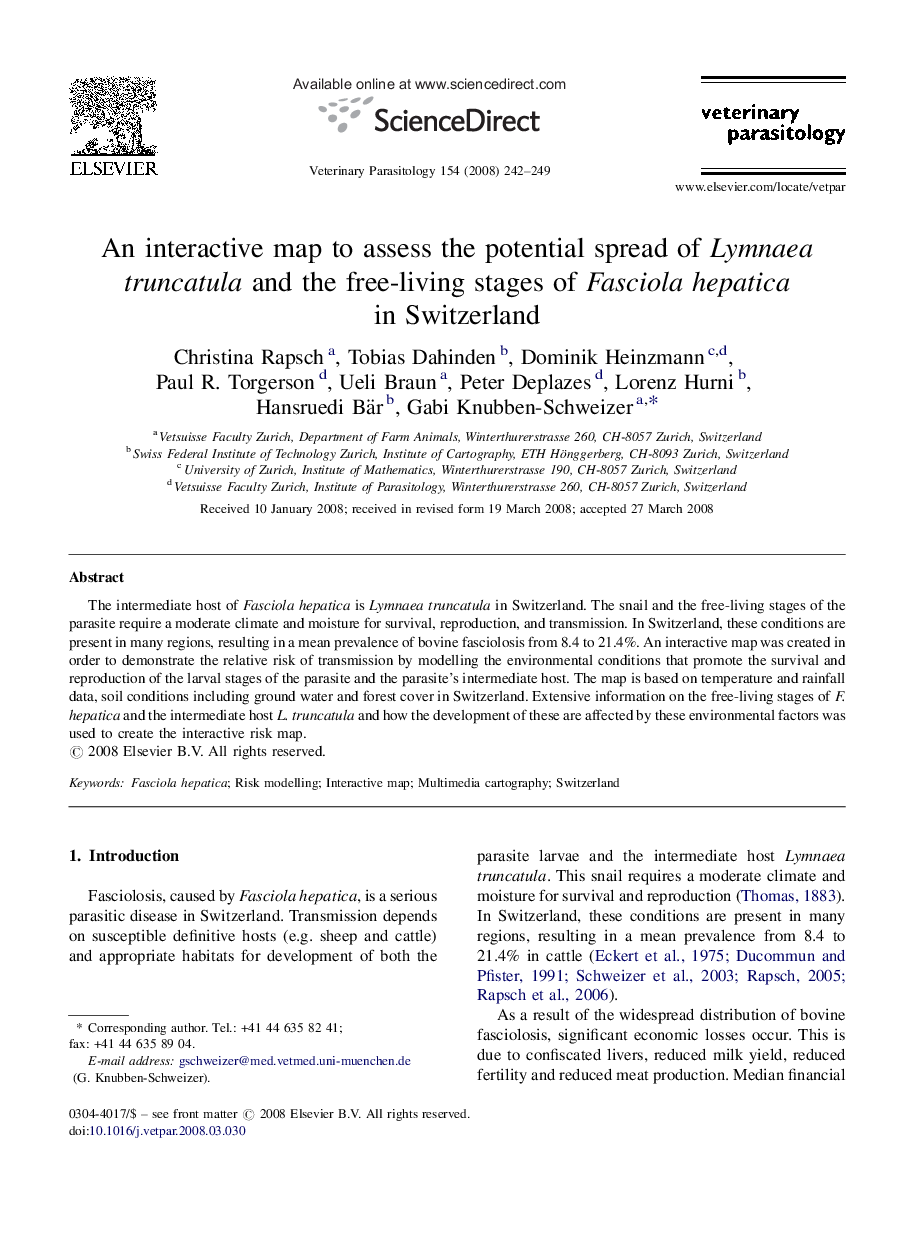| Article ID | Journal | Published Year | Pages | File Type |
|---|---|---|---|---|
| 2471513 | Veterinary Parasitology | 2008 | 8 Pages |
The intermediate host of Fasciola hepatica is Lymnaea truncatula in Switzerland. The snail and the free-living stages of the parasite require a moderate climate and moisture for survival, reproduction, and transmission. In Switzerland, these conditions are present in many regions, resulting in a mean prevalence of bovine fasciolosis from 8.4 to 21.4%. An interactive map was created in order to demonstrate the relative risk of transmission by modelling the environmental conditions that promote the survival and reproduction of the larval stages of the parasite and the parasite's intermediate host. The map is based on temperature and rainfall data, soil conditions including ground water and forest cover in Switzerland. Extensive information on the free-living stages of F. hepatica and the intermediate host L. truncatula and how the development of these are affected by these environmental factors was used to create the interactive risk map.
